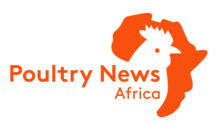In Kalalaka village, eastern Uganda, Erina Mooka is making a difference. As a private veterinary paraprofessional, Erina has been working closely with smallholder poultry farmers since 2022. Her goal is simple but powerful: to help farmers shift from keeping poultry for home use to running poultry as a sustainable business.
Erina organizes hands-on training sessions for farmers, often working with savings groups, local cooperatives, and community ambassadors. She focuses on key areas such as biosecurity and managing poultry farming as a business. Her approach is practical and rooted in the everyday realities of farmers’ lives.
Her turning point came when she participated in a FAO facilitated training course, Growing Your Business Through Preventive Livestock Healthcare. The course was organized by FAO in Uganda with the National Animal Genetic Resources Centre and Data Bank (NAGRC&DB) at Kasolwa Livestock Farm in Kamuli District.
This training helped Erina broaden her understanding of preventive animal health care and opened her eyes to new opportunities in the poultry value chain.
“The training helped me understand and appreciate the challenges that many farmers in my community face in accessing quality chicks and affordable feed. I saw an opportunity and I took it up”, Erina explains.
In early 2025, she started a chick brooding business with about 600 day-old chicks. Since then, she has distributed more than 1 300 healthy, vaccinated chicks to 90 farmers in her community.
“The chicks come from a trusted supplier and are brooded for one month under proper hygiene and care. A team of village ambassadors help me in delivering the chicks directly to farmers,” Erina explains.
Erina’s facility now produces between 500 and 1 000 chicks each month, with plans to reach 2 000 chicks each month later this year.
In late 2024, she opened a poultry feed outlet to help farmers access quality feed at a fair price. She is now exploring the idea of setting up a community feed mill to further reduce costs and ensure a steady local supply of feed.
“My desire is to expand my brooding business into a poultry training and research centre, so more farmers can learn and grow with me,” says Erina. “I also plan to establish a community-based feed mill to ensure a continuous supply of feed and reduce production costs for farmers.”
Her dream is to build a stronger poultry value chain that improves incomes, food security, and resilience for rural families. “Together, we can turn smallholder poultry farming into a reliable source of income and better livelihoods,” Erina says.



